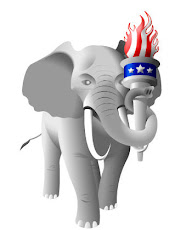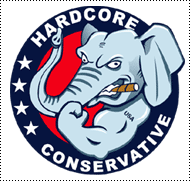I just bumped into this article written one year ago. It stirs up some thoughts in my head. What relationship does the democrats and environmentalists share here in Minnesota? Rick Hansen, Jim Metzen and John Zanmiller all have been catering to the Sierra Club. For instance, the Sierra Club has a seat on the Robert Street Transit Corridor Study. Why? Could it be that any transit decision must be approved by them or they will file suit in court and litigate it to death from now until eternity like the Stillwater Bridge?
Affordable energy is another subject that is hampered by environmentalists. We have two electrical power plants in the twin cities that no longer burn coal. Natural gas is now the fuel of choice. We may soon have a third. Electricity is costing us more everyday with no end in sight. Road blocks created by environmentalists are preventing access to the Big Stone II power plant in South Dakota which will have the latest emissions devices. Because of environmental roadblocks the Big Stone II plant may have to burn natural gas.
Every fall for as long as I can remember, there has been an article in the newspaper that states that we will be paying more to heat our homes because of natural gas shortages. Just last month there was an article that stated that this winter we can expect to pay as much as fifty percent more. Yet now environmentalists are basking in the glory of clean energy by burning up all the natural gas!
The amount of oil in Alaska, the continental shelf, and the Bakken formation which stretches across North Dakota, Montana and southeastern Saskatchewan is estimated to have enough oil (as well as plenty of natural gas) to supply the United States alone for 125 years. Environmentalists are planning to file suit to stop exploration by claiming that the Sage Grouse is an endangered species.
I am posting this article to point out how much power environmentalists have in this country. Our countries Constitution states the "We the People" are in charge of the government. Now it appears that its the environmentalists that rule the land. Time to shake things up and put the people back in control.
We all want a clean environment, be it air, water, or the land, to be stewards of the resources that God gave us. However, discussion on these issues, is not tolerated by the Sierra Club or their allies. Facts have become irrelevant, and any type of descent is subject to punishment, by whatever means possible.One has to ask, if this really represents freedom and liberty, that we say we cherish.
Bill Jungbauer
By Eric Christen
September 2, 2007
On Labor Day, we take time to reflect on and celebrate accomplishments and new beginnings regarding union labor in the United States. Considering the recent local controversy over the Gaylord-Chula Vista bayfront project, debate over the future relevancy of the organized labor movement now seems more prescient than at any time in our regional history. But to understand that future, we must turn our attention to the past.
The father of the modern union movement was Samuel Gompers, the legendary founder of the American Federation of Labor. Gompers made sure that labor remained inoculated against the burgeoning threat of socialism and the bitter rancor of partisan politics, focusing instead on organizing and winning concessions from targeted industries through collective bargaining. In the first half of the century, the AFL even refused to support minimum wage legislation. Labor under Gompers was dedicated to the principles of free enterprise under a market economy and opted for what he and his colleagues referred to as “trade unionism,” a collective bargaining strategy on which workers from across the political spectrum could agree.
For the most part, labor took neutral or centrist political positions – particularly on social issues. For example, in 1968, when the United Auto Workers threatened to leave the AFL-CIO because of AFL-CIO founder George Meany's opposition to an alliance with radical left-wing activists, Meany bid the UAW good riddance. With this type of focus and centrist leadership the organized labor movement in America flourished throughout much of the 20th century.
Nonetheless, over the last three decades, union membership has witnessed a rapid decline – from 35 percent of workers in 1960, to 12 percent today – while the mission of organized labor radically shifted course into one of political hyperactivity and intensive partisanship. The 1995 election of John Sweeney, a card-carrying member of the American Socialist Party, as head of the AFL-CIO was a watershed moment in the evolution of modern-day union radicalism.
It is Sweeney who immediately determined that the only way for unionism to survive under a modern, technology-driven global economy is to bastardize the collective bargaining process and employ any and all means necessary to force nonunion workers to join unions – while making them pay for the pleasure. This serves as much a practical as ideological purpose – it inflates union coffers to finance union political activities while increasing regional-level union influence throughout the nation. In the meantime, Sweeney and his ilk have taken out huge positions in the Democrat Party by bankrolling candidates who claim nearly 100 percent of all of organized labor's election-cycle donations – never mind the fact that 40 percent of individual union workers consistently vote Republican.
The Gaylord issue is a perfect example of this radicalized plan in local action. Throughout a turbulent year of negotiations with local labor leaders concerning a union project labor agreement, or PLA, for the company's $1 billion hotel and convention center plan along the Chula Vista bayfront, Gaylord displayed an incredible level of good faith by agreeing to almost every single union demand – except one. Labor leaders insisted that the project be built union-only.
Where do union leaders draw leverage for this type of negotiation? Simple. They tap their left-wing allies within the environmental movement, particularly on those regulatory commissions that approve projects such as Gaylord's. If a company such as Gaylord acquiesces to union demands, it can expect to zip through the regulatory process with little or no cost. If not, it is sure to incur the extra multimillion-dollar expense of regulatory delay and even frivolous environmental litigation.
The tactic – known as “greenmail” – is nothing more than a modern-day form of extortion, but has proven wickedly effective in the past, including on San Diego's beloved Petco Park, where all threats of environmental bureaucratic hullabaloo vanished as soon as the owner succumbed to union pressure over a union-only PLA. Of course, union-only PLAs have absolutely nothing to do with preserving local ecosystems, just ensuring union work force monopolies and ergo political primacy, which is exactly why the National Labor Relations Board recently voided a union-only PLA signed under similarly dubious circumstances in New York.
However, Gaylord is standing firm against union intransigence, and now that union officials have unilaterally withdrawn from negotiations, intends to pursue its project without their input. So, in this case, what have local union leaders achieved for their members by pursuing a politically rather than practically driven agenda? Absolutely nothing. In fact, they almost chased Gaylord out of San Diego and are still trying to kill the project.
Whom does that protect? How can you promote better wages and benefits if you're too busy killing jobs? If that is the union-present, union members should be very concerned about the union future – particularly those hundreds of thousands of hard-working men and women who simply want to earn a living and would rather their representatives not spend their dues lobbying such issues as more gun control. Or more access to abortion. Or the repeal of the death penalty. Or greenmail.
Unions are supposed to defend workers' rights, not stampede over them on the way to the political trough. If there is one lesson to be taken from this Labor Day, it is that union members deserve sound, solid, capable representation. The Gaylord debacle proves that union leadership across the board has been corrupted to the point of illegitimacy.
If the movement is ever to regain its original prestige and influence in the name of workers' rights, it must turn away from the radical job-killing political agenda of the John Sweeneys, Jerry Butkiewiczs and Tom Lemmons of the world and shift back to the practical collective bargaining path laid down by Samuel Gompers and nurtured by George Meany. Otherwise, the American labor movement is not likely to survive the next decade, let alone the new century – and rightly so.















No comments:
Post a Comment